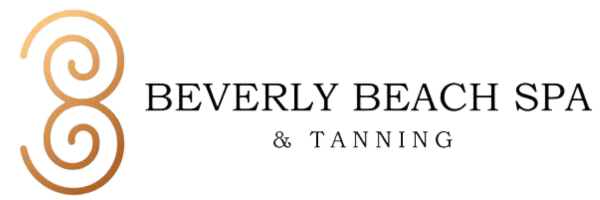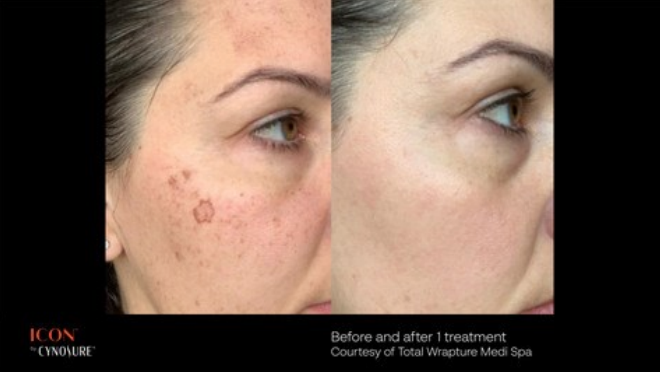
Intense Pulsed Light (IPL)
Intense Pulsed Light (IPL) therapy, also known as photo facial, is a way to improve the color and texture of your skin without surgery. It can undo some of the visible damage caused by sun exposure (known as photo aging) leaving your skin tone more even and looking younger. Unlike lasers, IPL devices send out more than one wavelength (595 nm to 1200 nm) of pulsating light; effectively treating a range of skin conditions all at the same time.
Sun Damage IPL is only suitable for treatment on clients with Fitzpatrick scale skin types I - III
Intense Pulsed Light (IPL) in an effective treatment solution for the following skin care concerns:
Acne
Fine Wrinkles
Age Spots
Freckles
Birth Marks
Leg (Spider) Veins
Broken Blood Vessels
Red Spots
Brown Spots
Redness from Rosacea
Dark Spots (Hormonal Changes)
Scars
Discolored Skin
Stretch Marks
Facial Vessel
Our Pricing
-
Treatment Time: 60 min
Add On: Full Face or Neck (Same Session) - $75
Add On: Decollete (Same Session) - $75
-
Treatment Time: 60 min
Add On: Second Area (5” x 7”) (Same Session) - $75
Add On: Third Area (5” x 7”) (Same Session) - $75
Add On: Hands - $150
Add On: Shoulders - $200
Optimal Result Recommendations:
Treatment Frequency: 5+ Treatments; 2-4 Weeks Apart
Frequently Asked Questions
-
IPL, short for Intense Pulsed Light, also known as a photofacial, is a non-laser, precision light generator that is used to minimize skin discolorations associated with accumulated sun damage – including freckles and brown spots on the face, chest and on the backs of hands and forearms. IPL can also help reduce the look of vascular problems, such as rosacea, while leaving the surface of the skin unharmed.
IPL is most effective on white, untanned skin (Fitzpatrick Skin Types I-III). A good candidate for this type of treatment would be a person with blotchy, sun-damaged or discolored skin. Those suffering from rosacea will see tremendous results as well.
People with tanned or naturally dark skin are not necessarily good candidates for IPL because there’s a risk that the skin pigment could change after treatment. Anyone taking Accutane should not consider an IPL treatment until at least six months after they stop using the drug. It’s also strongly recommended that pregnant women wait to receive IPL until after they’ve given birth.
-
IPL skin rejuvenation can safely and effectively treat many parts of the body and face, including the neck, shoulders, back, chest, arms, hands, and legs.
-
Day of Appointment
Arrive with clean makeup free skin
Do not wear: perfume, lotion, deodorant, or cologne
Avoid the following activities for 2 hours prior: exercising, hot tubs, showers or swimming pools
Day Before Appointment
Sunscreen should not be used for at least 12 hours prior
No alcohol use at least 12 hours prior
3 Day Prior to Appointment
Start antiviral medication (Valtrex or Valacyclovir) for any person with a history of herpes, cold sores or fever blisters
Skin must not be sunburned or tanned
7 Day Prior to Appointment
Cease the use of tanning products
Areas with residual tanning products that have color should be exfoliated
2 Weeks Prior to Appointment
Stop the use of products containing: alpha hydroxy and beta hydroxy acids (AHA’s + BHA’s), retinoids/retinol, glycolic/salicylic acids, benzoyl peroxide and hydroquinone
Suspend the use of herbal supplements such as St. John’s wort or Calendula
Suspend the use of any antibiotics
Do not receive Botox/neuromodulators or dermal filler injections
3 Weeks Prior to Appointment
Cease all UV exposure
4 Weeks Prior to Appointment
Cease all other resurfacing or collagen stimulating treatments:
Chemical Peels
RF Microneedling
Microneedling
Microdermabrasion
All Laser Treatments
-
Tylenol and cold packs/cold compresses may be used to alleviate any discomfort following treatment.
Activities that will raise body temperature or blood pressure; hot tubs, baths, showers, saunas, swimming pools should be avoided for 48 hours following an IPL treatment.
Direct UV exposure (suntan or tanning beds) should be avoided for a minimum of 7 days and the daily use of a broad-spectrum UVA/UVB SPF 30+ sunscreen should be used.
The area treated may temporarily lighten or darken, which will typically resolve within a few weeks to a month. Treated dark spots should darken and crust over. End result, an improved and brighter complexation.
Wait a minimum of 3 weeks before electing for any further resurfacing or collagen stimulating treatments such as chemical peels, microneedling, microdermabrasion, and other laser treatments.
-
IPL treatment may cause some pain or discomfort during or after treatment. You may feel a slight stinging or burning sensation, or like a rubber band hitting your skin .
-
Although side effects of IPL are typically rare and minimal in severity, the most common adverse events include pain and erythema (redness). Other reported side effects include edema (swelling), bullae (blisters), hematoma (broken blood vessel), crusting, hyper/hypopigmentation, leukotrichia, scarring, keloid formation, and infection.
-
Recovery time following an IPL Photofacial is minimal, with most patients returning to their daily activities and regular routine immediately after treatment.
-
The number of treatments required will vary based on the current condition of your skin and your desired treatment goals. Most clients require 3 to 7 treatments spaced 2-4 weeks apart to achieve desired results. Yearly follow up treatments are recommended to maintain the results.
-
Wait for at least 24 hours post-treatment before applying any cosmetics. This waiting period allows your skin to recover from the IPL procedure, reducing the risk of irritation or infection. The treated area may be sensitive, and immediate application of makeup can lead to clogged pores or aggravate the skin.













